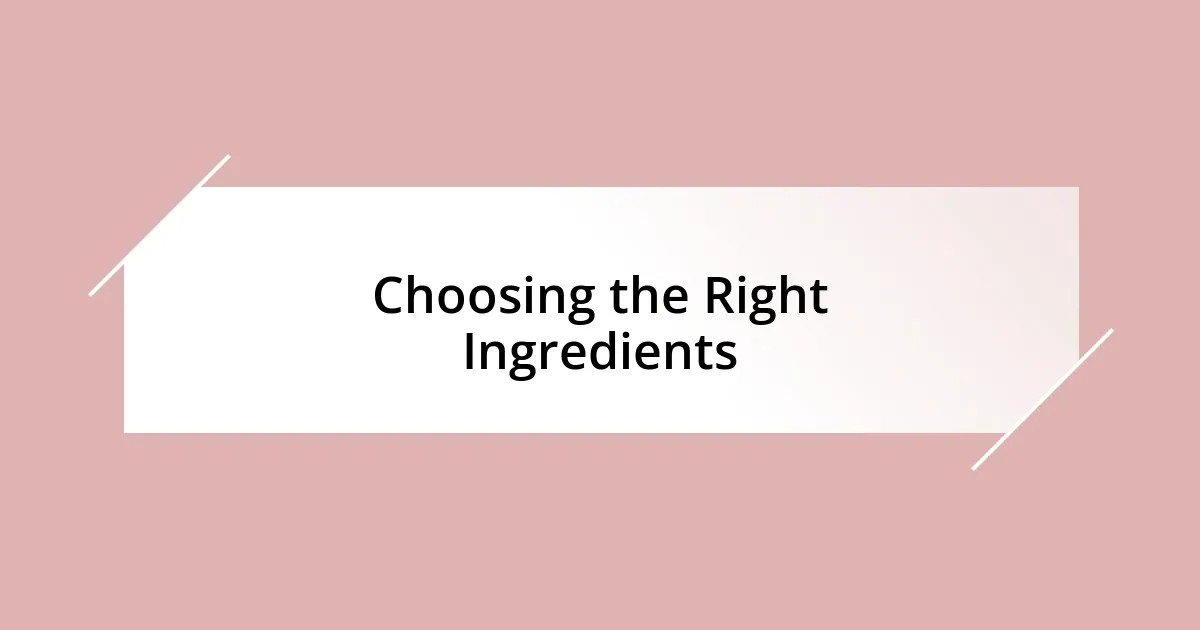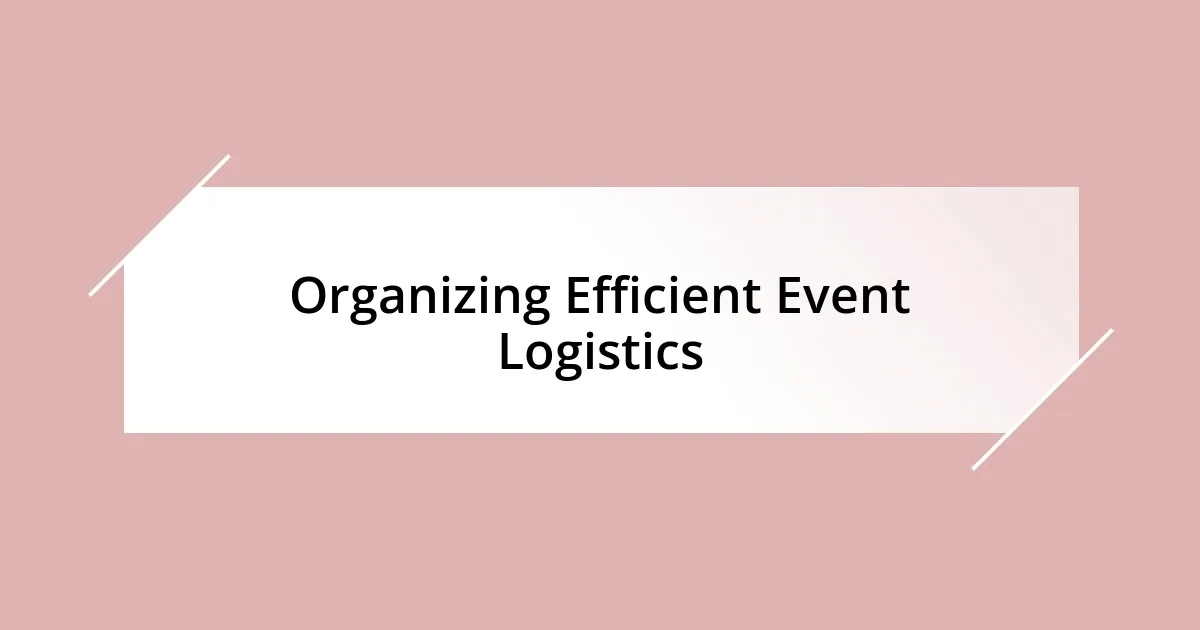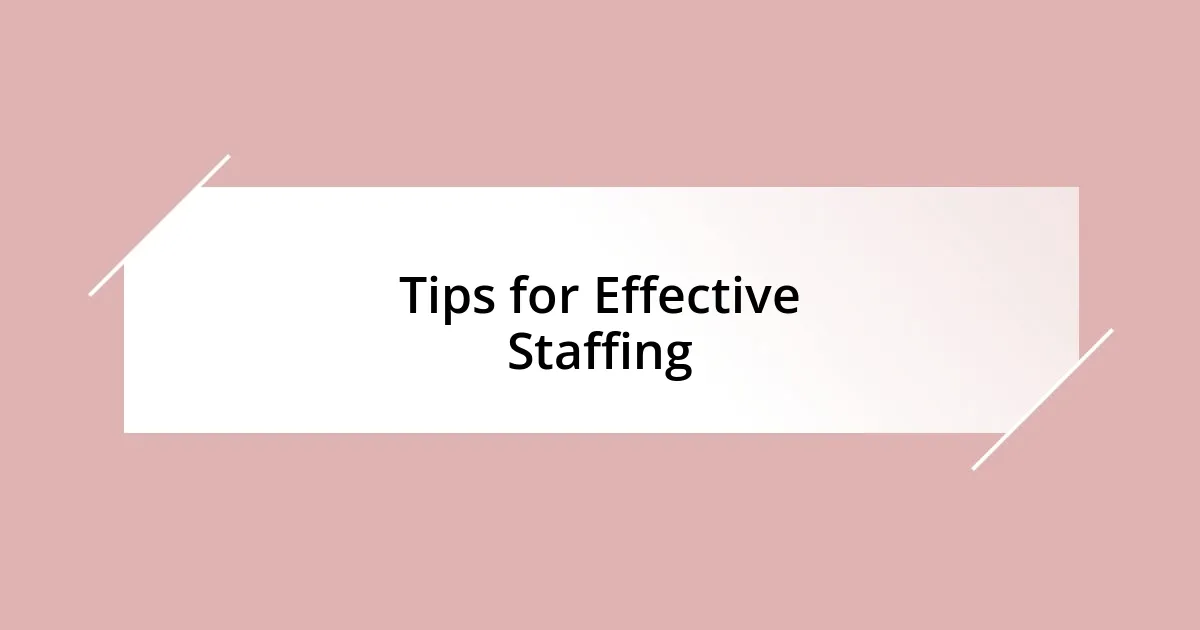Key takeaways:
- Understanding your catering needs is crucial for creating a memorable guest experience, considering dietary preferences and budget constraints.
- Diverse menu options and the use of seasonal ingredients enhance guest engagement and elevate the event’s atmosphere.
- Efficient logistics, clear communication, and contingency planning are key to successful event execution.
- Building strong client relationships through attentive communication, flexibility, and constructive feedback fosters trust and enhances service quality.

Understanding Your Catering Needs
When I first started planning events, I often underestimated the importance of understanding my catering needs. I remember hosting a small gathering and realizing too late that the menu didn’t reflect my guests’ preferences. Have you ever had that awkward moment when your guests hesitate at the buffet? Knowing your audience’s dietary restrictions and taste preferences can turn a good event into a memorable one.
Budget constraints can also play a significant role in your catering strategy, and I’ve learned this lesson the hard way. One time, I splurged on premium options, only to find out later that a simple yet elegant solution would have sufficed. Have you ever faced that dilemma? By carefully assessing what you truly need, I found it’s possible to strike a balance between quality and cost-effectiveness, allowing your catering to shine without breaking the bank.
Additionally, don’t forget to consider the event’s theme. There was a wedding I attended where the food was perfectly aligned with the couple’s unique style—a whimsical garden party with fresh, colorful dishes. It created such a lively atmosphere! What theme do you envision for your event? Matching your catering choices with your event’s tone not only elevates the overall experience but also shows thoughtful planning that guests will appreciate.

Planning a Successful Menu
When I think about successfully planning a menu, I often revisit a corporate event I organized last year. I chose a mix of familiar comfort foods like sliders and gourmet pizzas, but also ventured into bold territory with seasonal vegetables and artisanal cheeses. The moment I saw my colleagues gravitate towards the veggie platter, it hit me: diverse options not only cater to varying tastes but also spark curiosity. I believe it’s this blend that encourages conversation and creates a welcoming atmosphere.
Here are a few key considerations for building your menu:
- Diversity: Offer a range of dishes, including vegetarian, vegan, gluten-free, and meat options to satisfy all palettes.
- Seasonal Ingredients: Use fresh, seasonal produce to enhance flavor and presentation.
- Signature Offerings: Include a few unique dishes that reflect your personality or the event theme—these create memorable moments.
- Bite-sized Delights: Consider small plates or hors d’oeuvres that enable guests to mingle while sampling various flavors.
- Feedback Loop: If possible, gather feedback from a few guests on what they enjoyed most. This insight is invaluable for future events.
Every time I refine a menu, I realize that balancing comfort and creativity keeps my guests engaged. It’s about creating an experience that resonates with everyone present, and I’ve found that a well-planned menu is at the heart of that journey.

Choosing the Right Ingredients
Choosing the right ingredients can feel like a daunting task, yet it is fundamental to the success of any catering venture. I recall a time when I sourced ingredients for a themed dinner party. I made it a point to select organic vegetables and locally-sourced meats, which not only elevated the dishes but also resonated warmly with my environmentally conscious guests. Have you ever noticed how the story behind your ingredients can enhance the dining experience?
Moreover, it’s vital to consider the quality of ingredients over quantity. I remember preparing a dish with a handful of exquisite ingredients, allowing their natural flavors to shine, instead of overloading on less impactful options. Using high-quality items made a remarkable difference in taste and presentation. I still smile when I think of the delighted expressions on my guests’ faces. Have you tried this approach yourself?
Lastly, don’t underestimate the power of seasonal ingredients. When I crafted a summer menu featuring ripe tomatoes and fragrant basil from my garden, it truly showcased the essence of the season. I learned that freshness can create remarkable flavors that evoke emotions and memories. When was the last time you experienced the joy of seasonal cooking?
| Ingredient Type | Benefits |
|---|---|
| Organic | Healthier and environmentally friendly. |
| Locally-Sourced | Supports local farmers and ensures freshness. |
| Seasonal | Enhances flavor and connects guests to the time of year. |
| High-Quality | Elevates presentation and taste, creating memorable dishes. |

Organizing Efficient Event Logistics
I’ve discovered that coordinating logistics efficiently is what sets the tone for a successful event. For instance, during a recent wedding I catered, I remember the feeling of satisfaction when I established a clear timeline that allowed everything to flow seamlessly. Picture this: the caterers arrive at the venue with everything set for a smooth setup, while the florists have already transformed the space into something magical. Does that sound like a dream scenario? With meticulous planning, it doesn’t have to be.
Communication is another crucial element in event logistics. I’ve learned that keeping lines open between vendors can significantly minimize hiccups. At one corporate event, I found that a simple check-in with the audio-visual team prevented a mix-up that could have led to delays. Experiencing the collective relief in the room when everything went off without a hitch reminded me why these moments of connection are invaluable. Have you ever felt the camaraderie that comes from everyone being on the same page?
Lastly, I rely on creating a contingency plan to tackle potential challenges. I vividly recall an outdoor event where the forecast threatened rain. I quickly adjusted my setup to include canopies, which saved the day. This experience reinforced my understanding that being proactive can turn possible disruptions into minor inconveniences. What’s your approach to handling unexpected challenges?

Tips for Effective Staffing
Effective staffing is paramount for a successful catering event. I recall a particularly busy banquet where our team was stretched thin, but having the right mix of experienced staff made all the difference. Observing how well they clicked allowed me to appreciate the power of teamwork—have you ever felt that unity in a group effort?
Training and empowering your staff is equally crucial. I once organized a training session for my team before a large fundraiser, focusing on service etiquette and menu knowledge. The impact was immediate; guests noticed the attentive service, and I felt proud knowing my team was not only skilled but also confident. Have you taken the time to invest in your team’s growth?
Lastly, it’s beneficial to assign roles based on individual strengths. I remember a colleague who excelled at interacting with guests; I leveraged that skill by having her manage the front of house during a high-profile event. The positive energy she created resonated throughout the venue. How do you utilize uniqueness within your team to enhance service?

Managing Client Relationships
Managing client relationships is a delicate dance that requires careful attention and genuine connection. One memorable instance for me was when I took the time to meet with a couple well before their wedding day. Sharing a coffee and listening to their vision helped me understand their needs deeply. Those early conversations allowed me to build trust; they felt valued and seen. Have you ever experienced how a simple conversation can lay the groundwork for a strong partnership?
Flexibility is another essential element in maintaining good client relationships. I remember working with a corporate client who suddenly changed the guest count a few days before the event. Instead of panicking, I calmly reassured them that we’d adapt accordingly. That willingness to accommodate not only salvaged the event but also strengthened our rapport. It’s moments like these that make me appreciate the importance of being adaptable and responsive.
Feedback plays a crucial role in my relationship management strategy. After every event, I make it a point to reach out and ask for input on how we did. One time, I received constructive criticism about our presentation style. Instead of getting defensive, I embraced it. The following event showcased a new approach that my team and I were proud of, ultimately leading to even more positive feedback. How do you handle feedback? Embracing it can lead to incredible growth!














